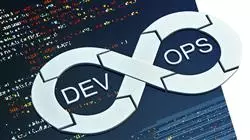University certificate
The world's largest faculty of information technology”
Introduction to the Program
Specialize in the senior management of technological projects in Cloud Computing and master the management of these solutions until your initiatives achieve the desired recognition”

Cloud Computing has become a fundamental pillar in the digital transformation of companies and organizations around the world, revolutionizing the way they operate and access technology. This field is especially relevant due to its ability to optimize processes, reduce costs and foster innovation through technologies such as the Internet of Things (IoT), Machine Learning and Artificial Intelligence. Senior management in this field is configured a key element to lead successful projects, which is why TECH has designed this complete advanced program, aimed at professionals looking to specialize in this technology and take their skills to the highest level.
With this approach, the program addresses the fundamental concepts of Cloud Computing, from programming cloud architectures to the integration of advanced services. It also dedicates an essential section to container orchestration with tools such as Kubernetes and Docker, guiding the student through the process of designing, implementing and managing scalable and secure technological infrastructures. In addition, the content includes the most up-to-date knowledge in cybersecurity, cloud storage and IT infrastructure transformation, providing added value for both those already in leadership roles and those aspiring to fill these positions in the technology industry.
One of the main advantages of this program is that it is 100% online, without the need for rigid schedules or transfers, allowing students to self-manage their learning. Thanks to this flexibility, they will be able to combine it with their daily responsibilities, adjusting their pace of study to achieve their professional goals in an efficient and practical way, with the support of an updated syllabus and resources designed by experts in the sector.
Driving business value with Cloud Computing depends on effectively managing cloud solutions”
This Advanced master’s degree in Cloud Computing contains the most complete and up-to-date educational program on the market. Its most notable features are:
- Practical cases presented by experts in Cloud Computing
- The graphic, schematic, and practical contents with which they are created, provide scientific and practical information on the disciplines that are essential for professional practice
- Practical exercises where the self-assessment process can be carried out to improve learning
- Special emphasis on innovative methodologies in Cloud Computing management
- Theoretical lessons, questions to the expert, debate forums on controversial topics, and individual reflection assignments
- Content that is accessible from any fixed or portable device with an Internet connection
The multitude of practical resources in this Cloud Computing program will allow you to consolidate essential industry knowledge”
It includes in its teaching staff professionals belonging to the field of Cloud Computing, who pour into this program the experience of their work, in addition to recognized specialists from reference companies and prestigious universities.
The multimedia content, developed with the latest educational technology, will provide the professional with situated and contextual learning, i.e., a simulated environment that will provide an immersive learning experience designed to prepare for real-life situations.
This program is designed around Problem-Based Learning, whereby the student must try to solve the different professional practice situations that arise throughout the program. For this purpose, the professional will be assisted by an innovative interactive video system created by renowned and experienced experts.
A 100% online program that will allow you to specialize at any time and from anywhere in the world"

TECH offers the most innovative methodology to guarantee effective and up-to-date learning"
Why study at TECH?
TECH is the world’s largest online university. With an impressive catalog of more than 14,000 university programs available in 11 languages, it is positioned as a leader in employability, with a 99% job placement rate. In addition, it relies on an enormous faculty of more than 6,000 professors of the highest international renown.

Study at the world's largest online university and guarantee your professional success. The future starts at TECH”
The world’s best online university according to FORBES
The prestigious Forbes magazine, specialized in business and finance, has highlighted TECH as “the world's best online university” This is what they have recently stated in an article in their digital edition in which they echo the success story of this institution, “thanks to the academic offer it provides, the selection of its teaching staff, and an innovative learning method aimed at educating the professionals of the future”
A revolutionary study method, a cutting-edge faculty and a practical focus: the key to TECH's success.
The most complete study plans on the university scene
TECH offers the most complete study plans on the university scene, with syllabuses that cover fundamental concepts and, at the same time, the main scientific advances in their specific scientific areas. In addition, these programs are continuously being updated to guarantee students the academic vanguard and the most in-demand professional skills. In this way, the university's qualifications provide its graduates with a significant advantage to propel their careers to success.
TECH offers the most comprehensive and intensive study plans on the current university scene.
A world-class teaching staff
TECH's teaching staff is made up of more than 6,000 professors with the highest international recognition. Professors, researchers and top executives of multinational companies, including Isaiah Covington, performance coach of the Boston Celtics; Magda Romanska, principal investigator at Harvard MetaLAB; Ignacio Wistumba, chairman of the department of translational molecular pathology at MD Anderson Cancer Center; and D.W. Pine, creative director of TIME magazine, among others.
Internationally renowned experts, specialized in different branches of Health, Technology, Communication and Business, form part of the TECH faculty.
A unique learning method
TECH is the first university to use Relearning in all its programs. It is the best online learning methodology, accredited with international teaching quality certifications, provided by prestigious educational agencies. In addition, this disruptive educational model is complemented with the “Case Method”, thereby setting up a unique online teaching strategy. Innovative teaching resources are also implemented, including detailed videos, infographics and interactive summaries.
TECH combines Relearning and the Case Method in all its university programs to guarantee excellent theoretical and practical learning, studying whenever and wherever you want.
The world's largest online university
TECH is the world’s largest online university. We are the largest educational institution, with the best and widest online educational catalog, one hundred percent online and covering the vast majority of areas of knowledge. We offer a large selection of our own degrees and accredited online undergraduate and postgraduate degrees. In total, more than 14,000 university degrees, in eleven different languages, make us the largest educational largest in the world.
TECH has the world's most extensive catalog of academic and official programs, available in more than 11 languages.
Google Premier Partner
The American technology giant has awarded TECH the Google Google Premier Partner badge. This award, which is only available to 3% of the world's companies, highlights the efficient, flexible and tailored experience that this university provides to students. The recognition as a Google Premier Partner not only accredits the maximum rigor, performance and investment in TECH's digital infrastructures, but also places this university as one of the world's leading technology companies.
Google has positioned TECH in the top 3% of the world's most important technology companies by awarding it its Google Premier Partner badge.
The official online university of the NBA
TECH is the official online university of the NBA. Thanks to our agreement with the biggest league in basketball, we offer our students exclusive university programs, as well as a wide variety of educational resources focused on the business of the league and other areas of the sports industry. Each program is made up of a uniquely designed syllabus and features exceptional guest hosts: professionals with a distinguished sports background who will offer their expertise on the most relevant topics.
TECH has been selected by the NBA, the world's top basketball league, as its official online university.
The top-rated university by its students
Students have positioned TECH as the world's top-rated university on the main review websites, with a highest rating of 4.9 out of 5, obtained from more than 1,000 reviews. These results consolidate TECH as the benchmark university institution at an international level, reflecting the excellence and positive impact of its educational model.” reflecting the excellence and positive impact of its educational model.”
TECH is the world’s top-rated university by its students.
Leaders in employability
TECH has managed to become the leading university in employability. 99% of its students obtain jobs in the academic field they have studied, within one year of completing any of the university's programs. A similar number achieve immediate career enhancement. All this thanks to a study methodology that bases its effectiveness on the acquisition of practical skills, which are absolutely necessary for professional development.
99% of TECH graduates find a job within a year of completing their studies.
Advanced Master's Degree in Cloud Computing
Cloud computing has become a ground-breaking technology that has transformed the way companies manage their technology infrastructure and offer digital services. As a leader in technology education, TECH Global University has developed an Advanced Master's Degree in Cloud Computing program for those professionals looking to update and specialize in this constantly evolving area. Through our postgraduate program, you will gain an in-depth understanding of the concepts, principles and technologies that make up cloud computing, and learn how to implement innovative and scalable cloud solutions that drive digital transformation in organizations.
In our program, you'll gain practical skills in cloud infrastructure design, implementation and management, cloud security, cloud service management, cloud migration, cloud data analytics and more. Our industry expert faculty will guide you in learning best practices and give you the hands-on experience you need through real-world projects and case studies. Get ready to lead the cloud computing revolution with our Advanced Master's Degree in Cloud Computing and transform your career in the world of technology.







